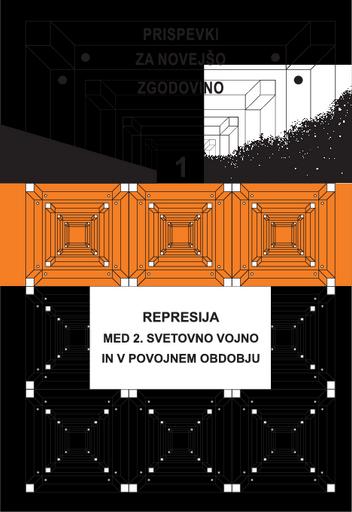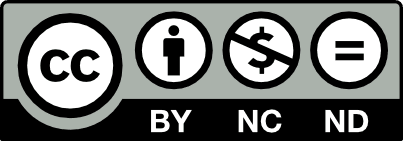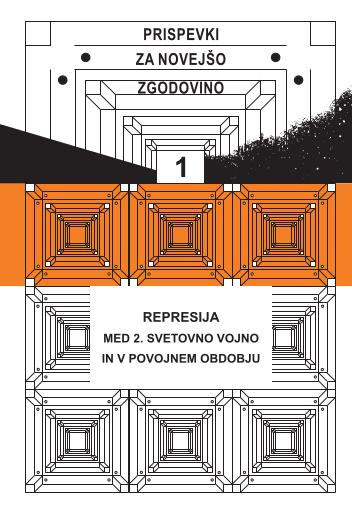/
Serijske publikacije
/
Prispevki za novejšo zgodovino
Represija na Hrvaškem po drugi svetovni vojni

Avtor(ji):Zdenko Radelić
Soavtor(ji):Zdenko Čepič (odg. ur.), Damijan Guštin (gl. ur.), Borut Praper (prev.), Bojana Samarin (lekt.)
Leto:2013
Založnik(i):Inštitut za novejšo zgodovino, Ljubljana
Jezik(i):slovenščina
Vrst(e) gradiva:besedilo
Ključne besede:Hrvaška, Jugoslavija, Komunistična partija Jugoslavije, komunistična revolucija, OZNA (Organizacija za zaščito naroda/ljudstva), UDBA (Uprava državne bezbednosti/ varnosti), Croatia, Yugoslavia, Communist Party of Yugoslavia, communist revolution, OZNA, UDBA
Avtorske pravice:

To delo avtorja Zdenko Radelić je ponujeno pod Creative Commons Priznanje avtorstva-Nekomercialno-Brez predelav 4.0 Mednarodna
Datoteke (1)

Ime:Prispevki_za_novejso_zgodovino_2013-1.pdf
Velikost:4.13MB
Format:application/pdf
Stalna povezava:https://hdl.handle.net/11686/file18345
Opis
Represija je bila pogojena z naslednjimi bistveni elementi in je iz njih izhajala: zmaga v vojni,
obnova Jugoslavije, reševanje nacionalnega vprašanja ter izvedba revolucije, kar pomeni, da so
bile vojne žrtve zmagovalcev vzrok maščevanja in povračilnih ukrepov, toda najbolj pomembni za
oblikovanje represivnega sistema so bili revolucionarni cilji, zaradi katerih je KPJ obračunala z
razrednimi, ideološkimi in političnimi nasprotniki ter tekmeci.
Metapodatki (12)
- identifikatorhttps://hdl.handle.net/11686/34917
- naslov
- Represija na Hrvaškem po drugi svetovni vojni
- Repression in Croatia after World War II
- ustvarjalec
- Zdenko Radelić
- soavtor
- Zdenko Čepič (odg. ur.)
- Damijan Guštin (gl. ur.)
- Borut Praper (prev.)
- Bojana Samarin (lekt.)
- predmet
- Hrvaška
- Jugoslavija
- Komunistična partija Jugoslavije
- komunistična revolucija
- OZNA (Organizacija za zaščito naroda/ljudstva)
- UDBA (Uprava državne bezbednosti/ varnosti)
- Croatia
- Yugoslavia
- Communist Party of Yugoslavia
- communist revolution
- OZNA
- UDBA
- opis
- Represija je bila pogojena z naslednjimi bistveni elementi in je iz njih izhajala: zmaga v vojni, obnova Jugoslavije, reševanje nacionalnega vprašanja ter izvedba revolucije, kar pomeni, da so bile vojne žrtve zmagovalcev vzrok maščevanja in povračilnih ukrepov, toda najbolj pomembni za oblikovanje represivnega sistema so bili revolucionarni cilji, zaradi katerih je KPJ obračunala z razrednimi, ideološkimi in političnimi nasprotniki ter tekmeci.
- The repression originated and stemmed from the following essential elements: victory in the war, restoration of Yugoslavia, solving the national question and carrying out the revolution. This means that the casualties suffered during the war by the victorious side resulted in vengeance and retaliatory measures. However, revolutionary goals were most important for the formation of the repression system – in order to achieve these goals, the Communist Party of Yugoslavia retaliated against class‑related, ideological and political opponents and rivals.
- The purpose of the following contribution is to present the reasons for the establishment of a repressive system. The key elements influencing the repressive measures of the military and state authorities under the leadership of the Communist Party of Yugoslavia during and after World War II and the establishment of the communist repressive system were various and interconnected. After the occupation of Yugoslavia in April 1941, the Communist Party of Yugoslavia organised a liberation movement, which also carried out the revolution. In Croatia the reasons for the resistance were the Yugoslav orientation of a significant percentage of the population, the Ustashe terror against the Serbs, racist persecution, Serbian mass rejection of the Croatian state, terror against all the opponents of the Independent State of Croatia, as well as strong anti‑Italian and anti‑German sentiment. These reasons were interconnected, and at the same time they represented the causes of the subsequent liquidation of the opponents and retaliatory measures, namely, the extensive repression carried out by the Yugoslav communist authority. After the war Yugoslavia was restored. Federalism was introduced as a way of addressing the national issues, and Yugoslavia annexed extensive territories which had until then belonged to Italy. On the basis of Yugoslav nationalism the new state leadership settled the score with separatists and the German minority. Communist Party of Yugoslavia created a new social system with a tactical combination of propaganda and concrete measures. It appealed to the contributions of the national liberation movement to the liberation and emphasised the role of the people and their will. Despite its references to the People’s Front, the Communist Party took over all the key positions within the partisan movement and the nascent state apparatus. This had drastic consequences for all of its opponents and rivals. Naturally, a large number of casualties among the victors was among the important reasons for vengeance against the wartime enemies. However, this involved the intention of the Communist Party of Yugoslavia to neutralise all the real and imaginary military and political opponents and marginalise them socially. The repression involved death sentences, prison sentences, exile, confiscation of property, prohibition of political activities, and social marginalisation of the disarmed enemies and political opponents. After the alliance between the victors had dissolved, a danger of a war between the states of the so‑called Western parliamentary democracy and the East under the leadership of the communist Soviet Union became apparent, in which the Yugoslav anti‑communist forces would surely support the West. In this potential war Croats, members of anti‑communist parties and movements, would play an important part, and so would Serbs in Croatia, members of the Chetnik movement. Among the former those who stemmed from the Ustashe movement as well as the members and adherents of the Croatian Peasant’s Party (Hrvatska seljačka stranka) at home and abroad had the greatest influence. The Ustashe emigration and its supporters at home had the goal – apart from destroying the communist system – of abolishing Yugoslavia and establishing an independent Croatian state. Since the 1960s the Croatian Peasant’s Party, still active in emigration, changed its pro‑Yugoslav standpoint and started arguing for an independent Croatia. All of this resulted in the Communist Party of Yugoslavia building a strong repressive system.
- založnik
- Inštitut za novejšo zgodovino
- datum
- 2013
- tip
- besedilo
- jezik
- Slovenščina
- jeDelOd
- pravice
- licenca: ccByNcNd
